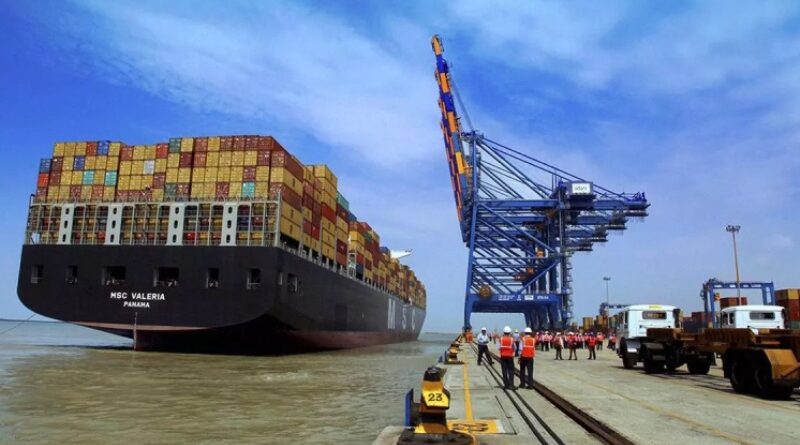COP28: UNCTAD urges swift measures to reduce the carbon footprint in the maritime sector
Photo: Shipping carries over 80 per cent of world merchandise trade by volume and generates 3 per cent of global greenhouse gas emissions | Photo Credit: Baskar B@Chennai
As the 28th session of the Conference of the Parties to the United Nations Framework Convention on Climate Change is underway in Dubai, the United Nations Conference on Trade and Development (UNCTAD) has urged nations to take swift measures to reduce the carbon footprint in the maritime sector. This is critical considering the economic role of the sector and the potential for the current carbon footprint to grow in tandem with global economic growth and trade expansion.
A policy brief issued by UNCTAD says that shipping carries over 80 per cent of world merchandise trade by volume and generates 3 per cent of global greenhouse gas emissions that, without timely decarbonisation action, are expected to grow in tandem with growth in maritime transport and trade.
Uncertainty regarding the type and availability of fuels in future and the scope of regulatory measures are delaying investment in the required low-carbon fuels and the shipping fleet. Shipping cannot decarbonise on its own; enhanced collaboration among key stakeholders from within and outside the maritime transport sector is crucial, the UNCTAD said.
Investments needed
Significant investments in ships and alternative fuelling infrastructure are required and are likely to generate transition costs affecting all economies, particularly the least developed countries and small island developing States, which already face relatively higher shipping costs and will need to deal with increased maritime logistics costs.
An economic measure in the form of a levy on fuels or a carbon price can help make alternative fuels more competitive, provide certainty to investors and generate funds that can support a green and just energy transition in shipping, the agency said.
Decarbonising shipping will require a shift in technology and operations and an uptake of alternative low and zero GHG fuels. The transition entails a potential increase in maritime logistics costs, shipping rates and voyage times. Investments required to adjust ship designs, engines, operations, generate alternative low and zero carbon fuels at scale and implement green onboard technologies all have a price tag. This will drive up costs for shipowners, industry and, ultimately trade and the final consumer.
Decarbonisation
It will cost a lot for the shipping industry to reduce carbon footprint. Decarbonising shipping requires major investments: just halving shipping emissions by 2050 may require $1.4 trillion in investment. Existing estimates indicate that additional investments of $8 billion to $28 billion are required annually by ships to decarbonise by 2050.
About $28-90 billion are needed annually onshore to scale up production, fuel distribution, and bunkering infrastructure to supply the totality of carbon-neutral fuels by 2050. The more expensive energy sources and onshore investments could increase annual fuel costs by over $100 billion to $150 billion when fully decarbonized or incur a 70 per cent to 100 per cent increase from today, the agency said.
Source: thehindubusinessline.com




